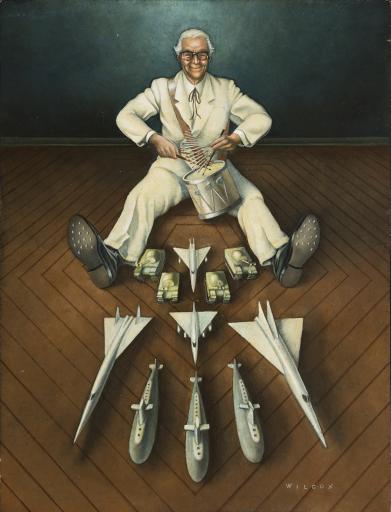Ol' Man Rivers, David Wilcox
Artwork Overview
David Wilcox, artist
born 1943
Ol' Man Rivers,
1970
Portfolio/Series title: published in Esquire magazine, October 1970
Where object was made: United States
Material/technique: tempera; panel
Dimensions:
Canvas/Support (Height x Width x Depth): 42.9 x 32.7 cm
Canvas/Support (Height x Width x Depth): 16 7/8 x 12 7/8 in
Canvas/Support (Height x Width x Depth): 42.9 x 32.7 cm
Canvas/Support (Height x Width x Depth): 16 7/8 x 12 7/8 in
Credit line: Gift of Esquire, Inc.
Accession number: 1980.0525
Not on display
If you wish to reproduce this image, please submit an image request


